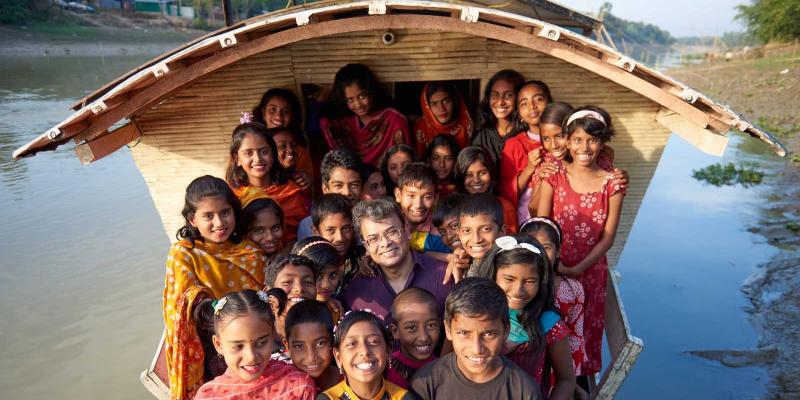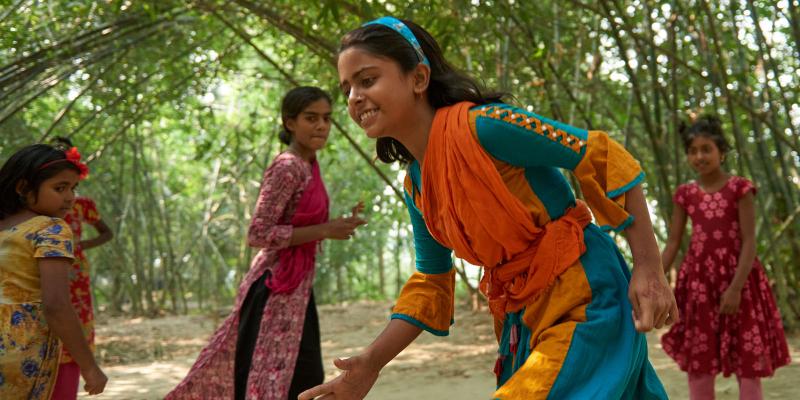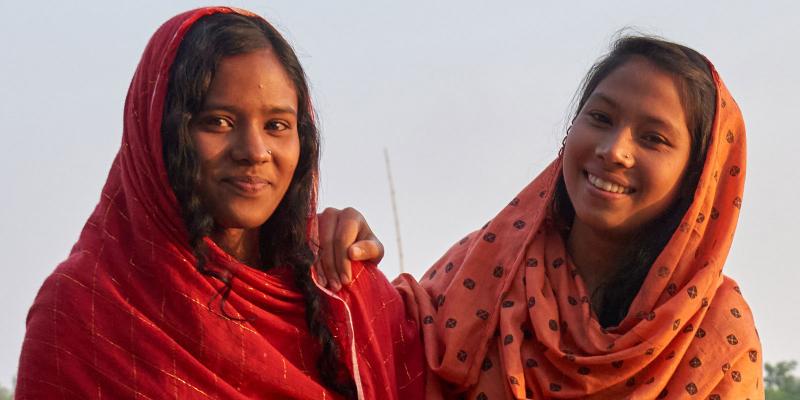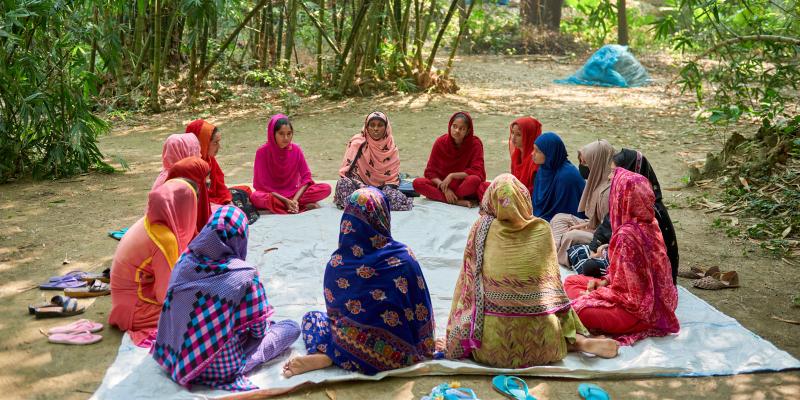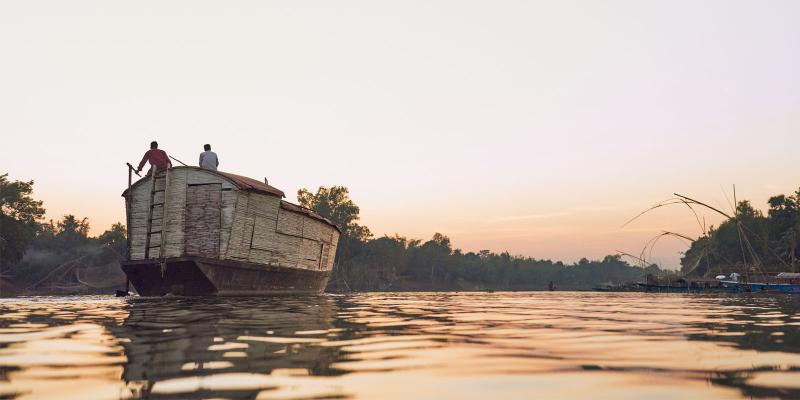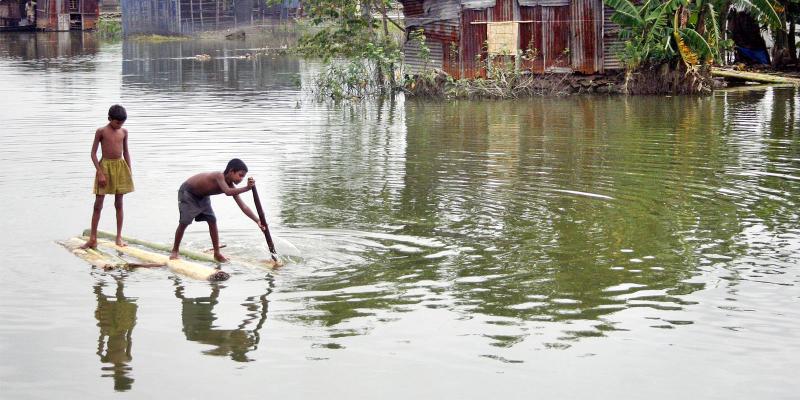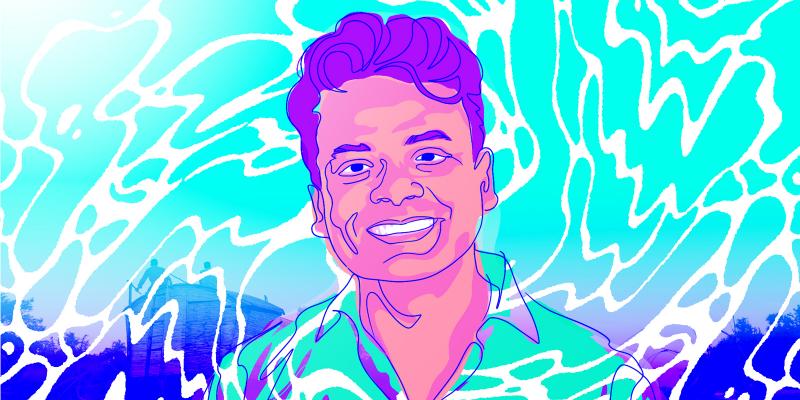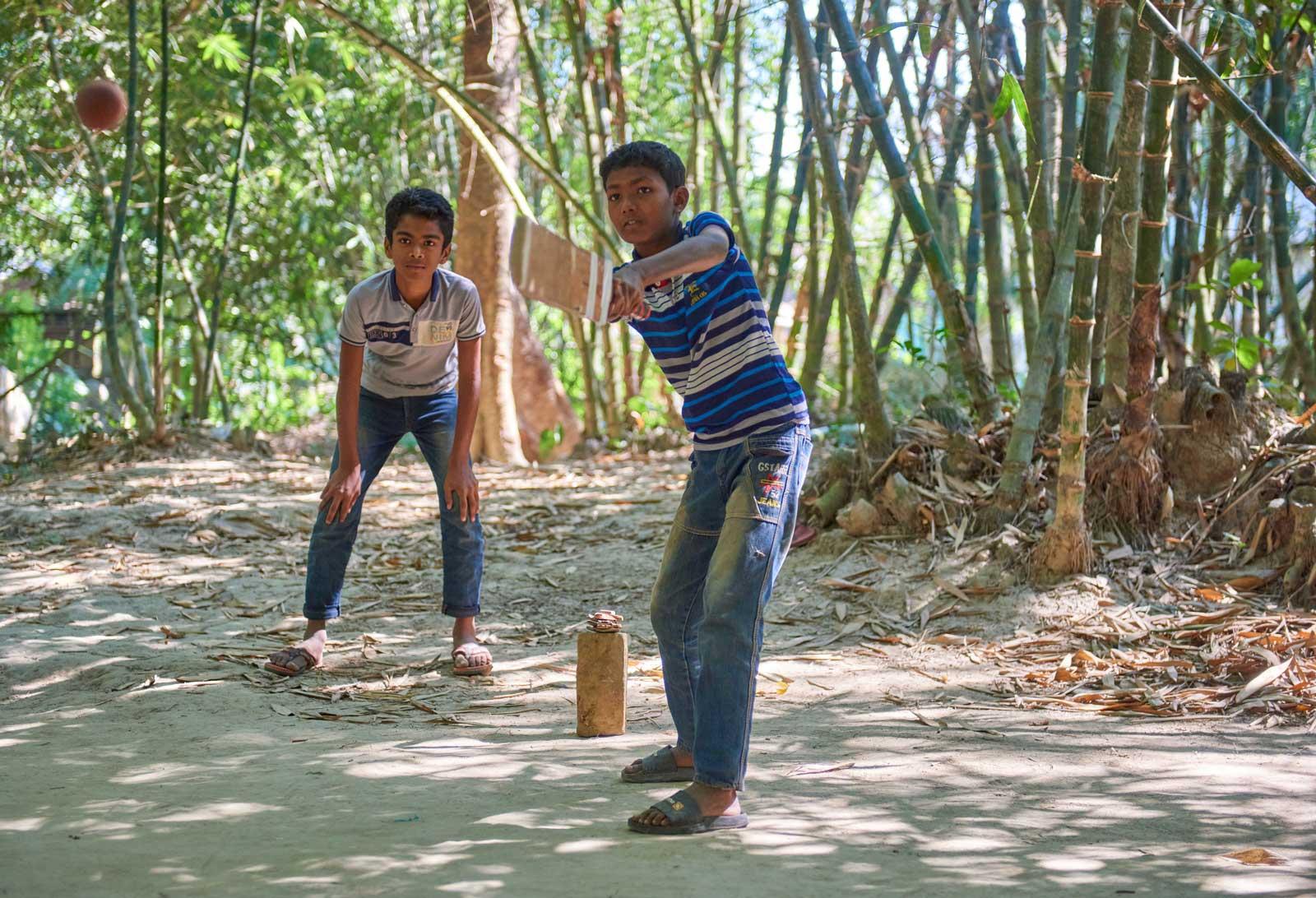
“You need to wake up! The whole house is flooded, we have to go NOW!” shouted Jibon’s mum as she tried to shake him into life. Like so many other landless people, Jibon’s family lived in a simple mud building close to the river, which is the cheapest place to live.
‘‘It was late in the evening, and everyone had gone to bed when mum suddenly woke us up. Floodwater was rushing into the house. When I stood up, the water came right up to my waist. I was so afraid. Perhaps mostly of all the snakes that are in the water everywhere when there’s a flood. Being bitten by a snake can be fatal.”
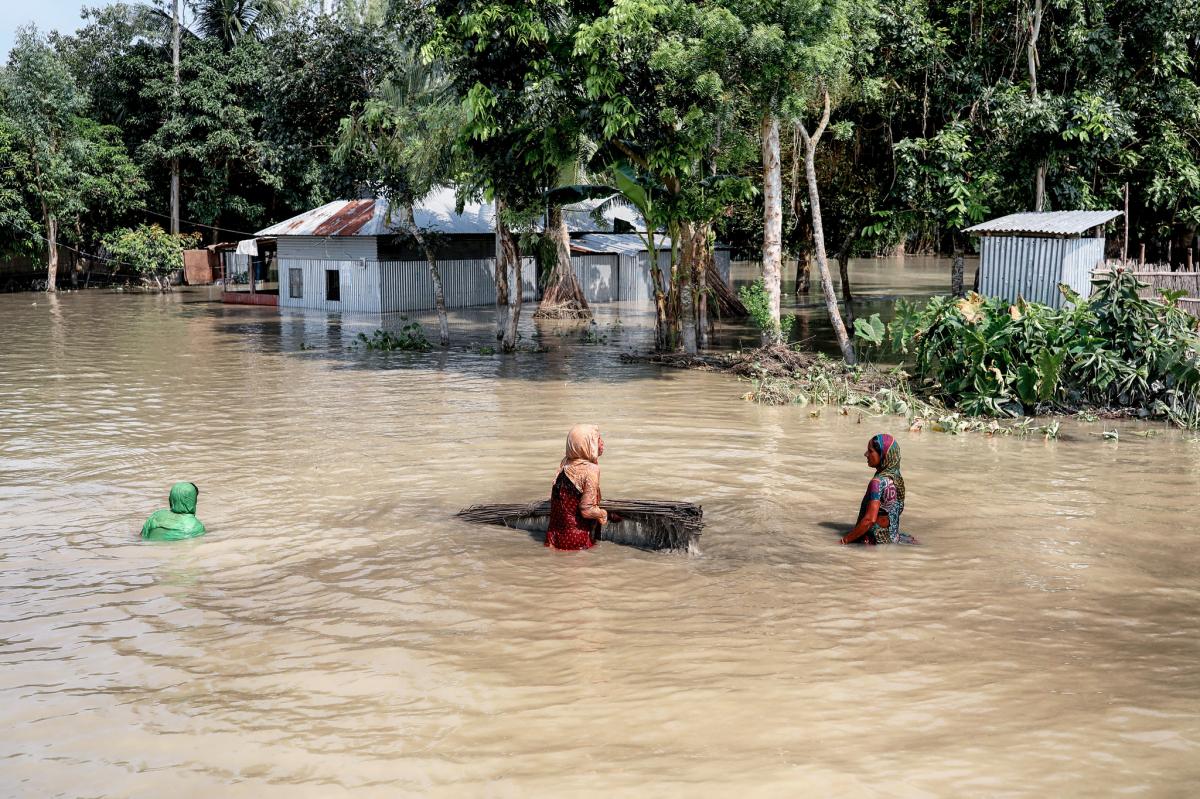
Panic
“I panicked and couldn’t stop crying, so mum lifted me up and ran. When we got to a little hill, we watched as the whole house went under the water and was swept away by the river. Mum and dad managed to bring some money with them, but most of what little we owned disappeared. Two of our cows were dragged under the surface and drowned in the floodwater.“We are landless, so we don’t have any land of our own. And the small strip of land we rented to grow grass for our cows was covered in water and destroyed. But we were lucky that the whole family survived. Because that night we thought we were going to die.”
Boat school helps
“After a few months with grandma and grandpa, dad had finished building the house we live in now. I like my new house. It’s higher up and further from the river, so I’m not so afraid that it will happen again. But I still have nightmares and sometimes I wake up sweating in the middle of the night.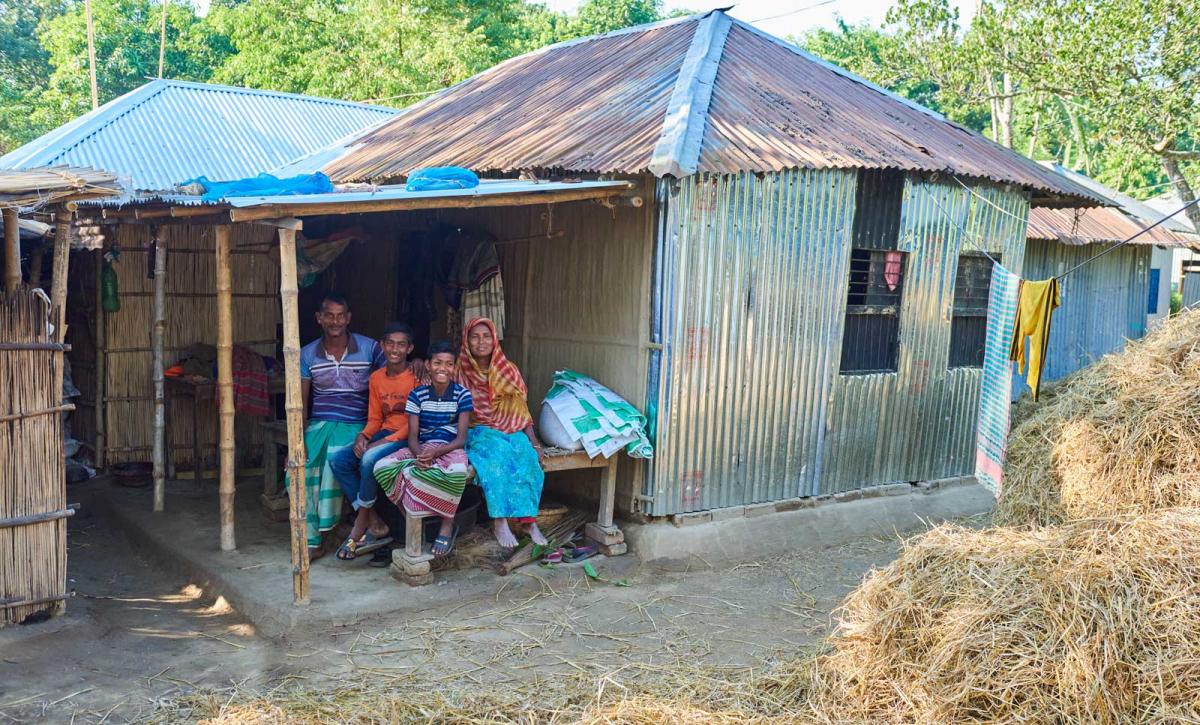

“We’ve had to move three times in five years because of flooding. Every time it happens, we lose almost everything we own. We are often hungry. We only had dried rice to eat after the latest flooding. I asked mum for some fish with the rice, but she said we couldn’t afford it. We had nothing.
“It’s great for us that I get to go to boat school, as we’ve lost so much in the floods. Because everything’s free at boat school. The teaching, the notebooks, pens...everything! I’m in fifth grade now, and in the future I dream of becoming an engineer and building large bridges and buildings.”
Told by Jibon, 11
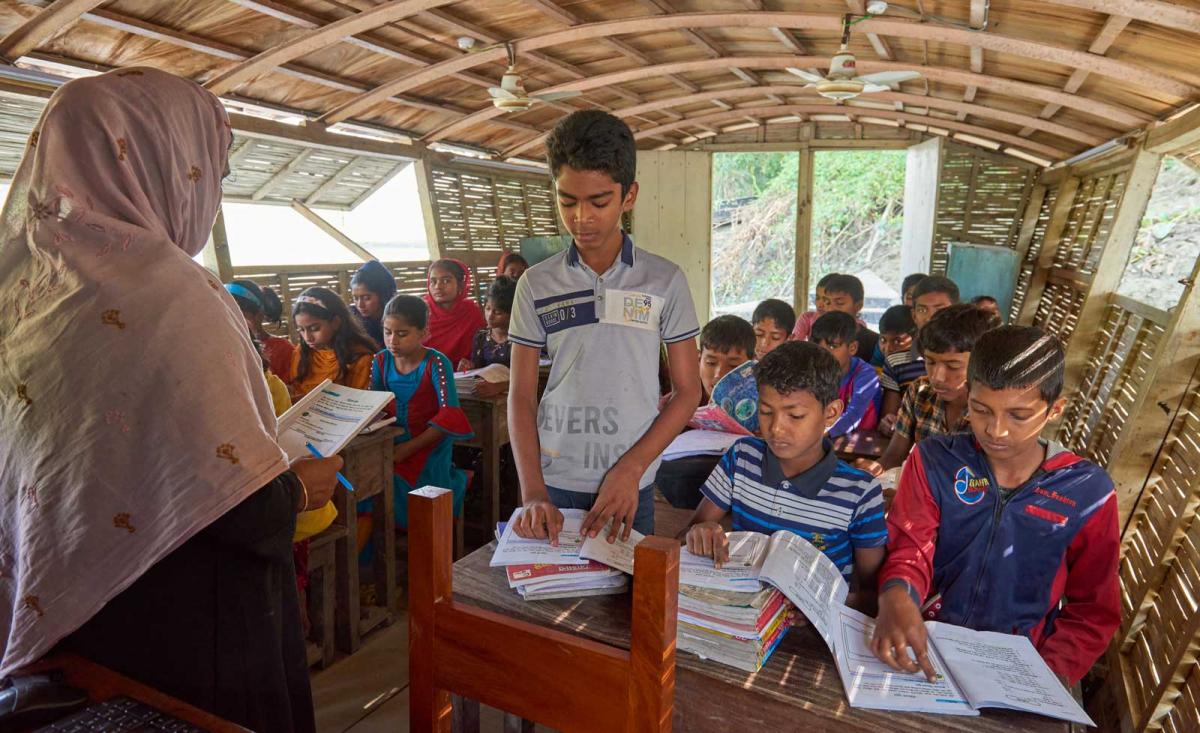
Class against child marriage
“Both the teachers and the students at the boat schools campaign against child marriage, because girls suffer and are forced to quit school. It’s wrong and unfair. There was this one time we managed to stop a marriage for a girl who was only 14. The whole class of 30 students went along with our teacher to the girl’s family and explained to the parents that child marriage is wrong. In the end they decided to cancel the wedding, and it felt really good! I will never marry anyone who is under the age of 18,” says Jibon.TEXT: Andreas Lönn
PHOTO: Johan Bjerke
Related stories
Långgatan 13, 647 30, Mariefred, Sweden
Phone: +46-159-129 00 • info@worldschildrensprize.org
© 2020 World’s Children’s Prize Foundation. All rights reserved. WORLD'S CHILDREN'S PRIZE®, the Foundation's logo, WORLD'S CHILDREN'S PRIZE FOR THE RIGHTS OF THE CHILD®, WORLD'S CHILDREN'S PARLIAMENT®, WORLD'S CHILDREN'S OMBUDSMAN®, WORLD'S CHILDREN'S PRESS CONFERENCE® and YOU ME EQUAL RIGHTS are service marks of the Foundation.



